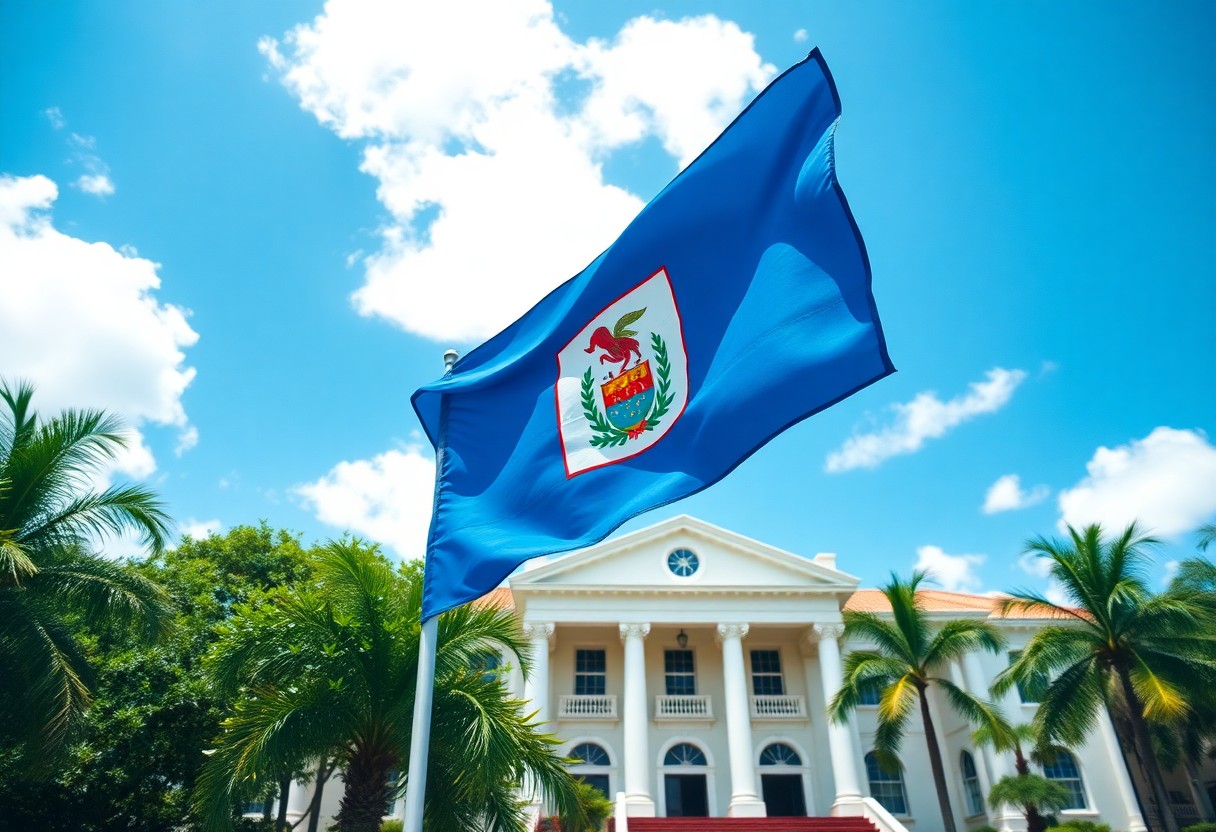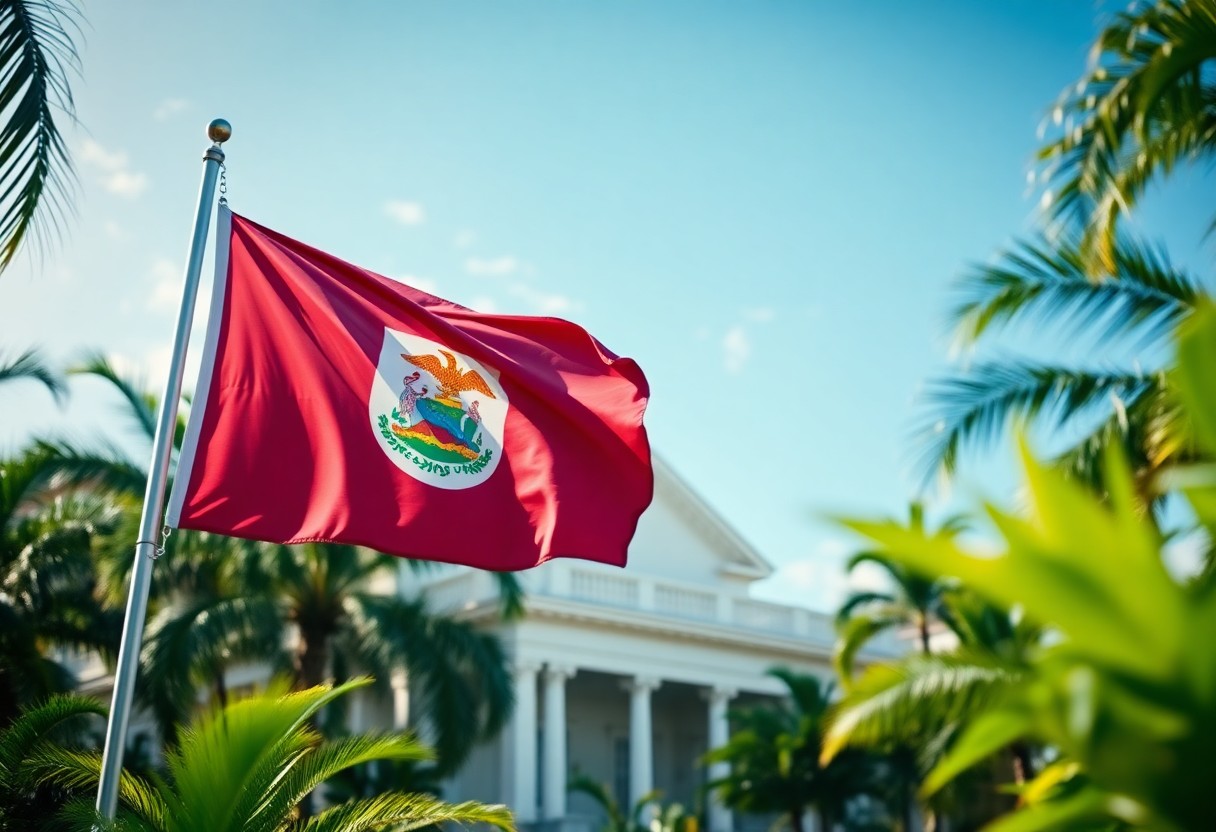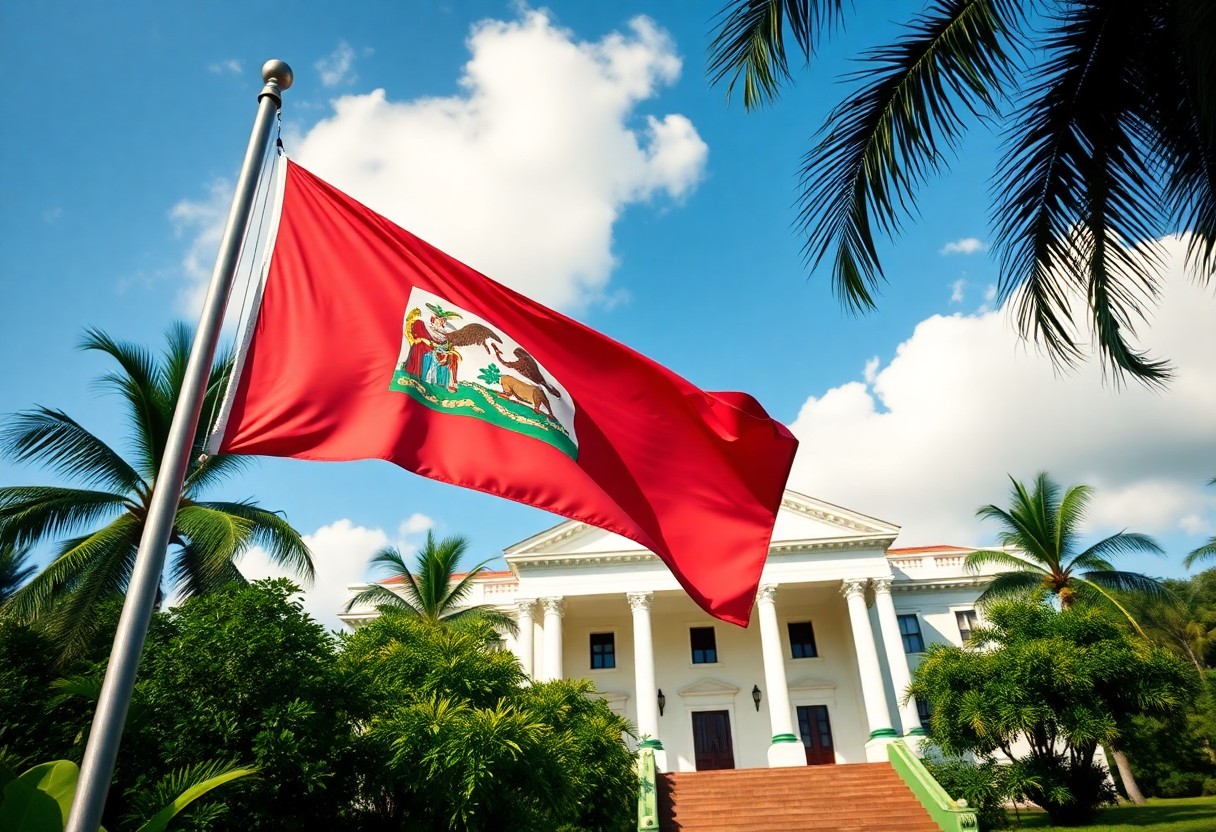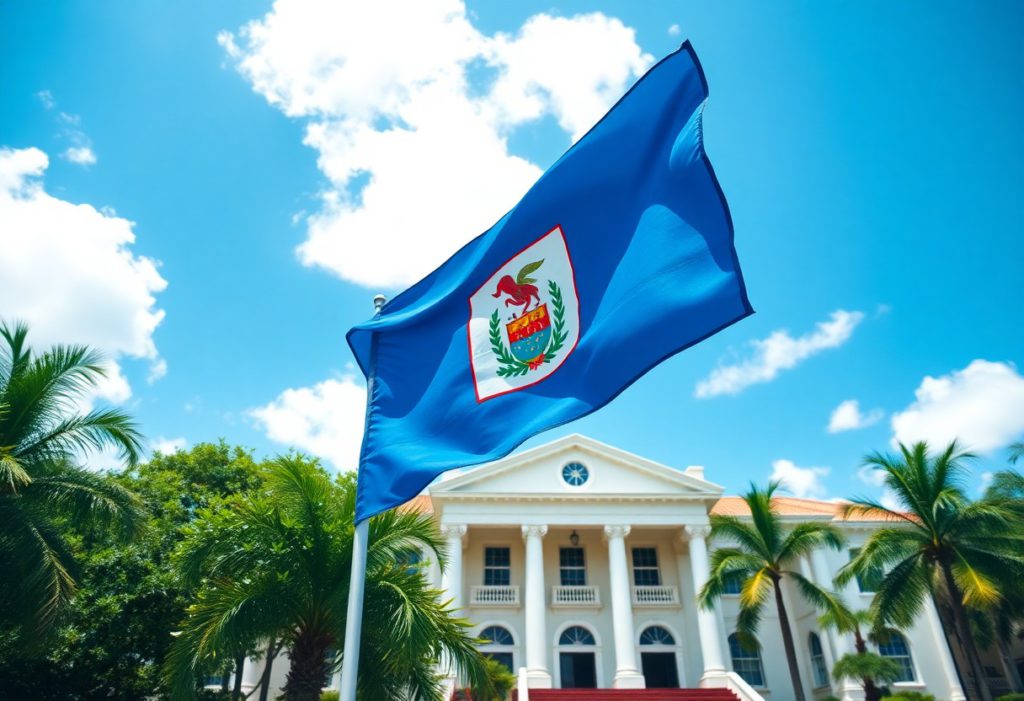Exploring Belize’s Path to Sovereignty is essential for understanding the core of Belizean identity and historical narrative. This article will explore the critical historical events that shaped the nation’s evolution into an independent nation. It emphasizes the persistent struggles against colonial rule, the key treaties that were negotiated, and the monumental achievement of autonomy that was realized in 1981. These historical events not only highlight the strength and perseverance of the Belizean populace but also illuminate the transformative shifts that laid the groundwork for a democratic Belize. Join us as we delve into the significant milestones that construct the modern Belizean identity.

Diving Deep into the Vibrant Pre-Colonial History of Belize
Before European arrival, the pre-colonial period in Belize was filled with a rich array of indigenous cultures and deep-rooted histories. Various indigenous groups thrived in this region, with the Maya civilization being the most dominant among them. These advanced societies established complex social hierarchies, sophisticated agricultural practices, and extensive trade networks that were noteworthy for their era. The cultural heritage from this time laid a vital cornerstone for Belize’s identity, significantly influencing the course of future historical events in the region. Understanding this pre-colonial era is crucial for appreciating the layers of Belize’s contemporary identity.
Discovering the Remarkable Achievements of Maya Civilizations
A thorough exploration of pre-colonial Belize must highlight the extraordinary accomplishments of the Maya civilizations. These ancient societies not only thrived but also achieved significant advancements in fields such as architecture, astronomy, and agriculture. Today, both tourists and locals can visit awe-inspiring ruins like Caracol and Lamanai, which stand as enduring symbols of the Maya’s sophisticated way of life, reflecting their profound knowledge of urban planning and natural sciences. These archaeological sites offer insights into the innovative spirit and cultural richness that characterized the Maya civilization, making them crucial for understanding Belize’s historical narrative.
Exploring the Diverse Cultural Heritage of Belize
At the heart of Belize’s identity is a rich and intricate cultural heritage. This vibrant tapestry is woven from the complex interactions of indigenous, African, and European influences that have shaped modern Belizean society. The diversity of this heritage is clearly mirrored in the variety of languages, traditions, and customs that enrich everyday life in Belize, contributing to a distinctive cultural landscape celebrated by its inhabitants. This intermingling of cultures creates a unique identity that resonates with both locals and visitors alike, showcasing the country’s rich history.
Furthermore, this heritage plays an essential role in shaping Belize’s cultural identity today. The architectural wonders of the Maya, along with their agricultural ingenuity, continue to have a lasting impact on contemporary Belizean society. Additionally, the contributions from the African and Creole communities have greatly enriched Belize’s artistic expressions, musical traditions, and culinary arts. This fascinating blend of cultures fosters a profound sense of belonging and pride among Belizeans while serving as a reminder of the historical challenges faced by these diverse groups throughout the course of Belize’s history.
Examining the Era of British Honduras and Its Lasting Legacy
The period when Belize was known as British Honduras represents a significant chapter marked by British colonial authority. Spanning from the 18th century into the mid-20th century, this era fostered the development of a unique cultural identity profoundly influenced by British governance, economic interests, and local resistance movements. It was during this time that critical transformations occurred within political and administrative frameworks, ultimately setting the stage for Belize’s unwavering pursuit of independence from colonial rule.
An In-Depth Timeline of British Rule in Belize
Following its official designation as a British colony in 1862, British Honduras experienced considerable developments, including the introduction of the British legal system and the establishment of essential infrastructure. Over the years, the colony faced significant opposition from the local populace, particularly highlighted during pivotal events like the 1934 labor riots, which galvanized support for self-governance among the Belizean community. These local uprisings played a crucial role in awakening political consciousness and mobilizing public demand for change.
The Enduring Impact of British Colonial Rule on Belizean Society
Above all, the legacy of British colonial governance has profoundly influenced Belizean society and its governance structures. The introduction of the English language, coupled with legal frameworks and educational systems, has been instrumental in modernizing the nation. While this relationship presented certain challenges, it also established essential foundations for the democratic governance that Belize enjoys today. Acknowledging this historical context is vital for understanding the complexities of Belize’s current political landscape.
Furthermore, the impact of British colonial rule is evident in various facets of Belize’s present-day society. The English language remains the official language, facilitating both local and international communication. Additionally, the legal and governance frameworks established during colonial times continue to underpin Belize’s current legal system. However, it is imperative to recognize that this influence was also accompanied by the exploitation of resources and cultural imposition, which have had lasting effects on Belizean demographics and national identity. A nuanced understanding of these dynamics is essential for grasping Belize’s intricate journey toward independence.

The Critical Journey Toward Belizean Independence
Any discussion concerning Belize’s journey toward independence must highlight the significant events that paved the way for this historic transformation. The road to freedom involved responding to colonial pressures, nurturing a growing sense of nationalism, and advocating for greater self-determination among the Belizean people. The mid-20th century witnessed a surge in political activism that laid a strong foundation for Belize’s eventual liberation from British colonial authority.
Recognizing Influential Leaders in Belize’s Independence Movement
Key milestones along Belize’s path to independence prominently featured influential leaders such as George Cadle Price. By acknowledging their leadership and vision, we can appreciate how these figures effectively mobilized public support for self-governance, significantly shaping the future and identity of the nation. Their dedication and strategic efforts played a crucial role in rallying the Belizean populace around the cause of independence.
Engaging in Crucial Negotiations for Self-Governance
During the pivotal discussions for self-governance, representatives from the Belizean community took center stage, proposing transformative strategies that would ultimately alter the trajectory of history.
With a proactive and determined approach, Belizean leaders engaged in meaningful discussions with British representatives concerning self-governance. These negotiations proved to be a turning point, as Belize sought to assert its autonomy in managing its own affairs. The formation of political parties and organized movements played an essential role in articulating the demands for change from the Belizean populace. As tensions escalated, the negotiations became increasingly intense, reflecting the urgency felt by Belizeans for autonomy. This critical period culminated in various constitutional amendments, establishing the framework for Belize’s eventual independence from colonial oversight.
Landmark Events on the Path to Independence
A multitude of landmark events marked Belize’s challenging journey to independence. From early legislative actions to pivotal occurrences, each moment played a crucial role in the quest for self-determination. As you explore these milestones, you will come to appreciate their profound impact on the nation’s identity and the ongoing struggle for sovereignty.
Key Legislative Changes Leading to Self-Governance
One of the pivotal early legislative changes was the introduction of the Internal Security Act in 1961. This act established a framework for self-governance, allowing for a limited degree of autonomy in local governance matters. This significant legislation marked a turning point, encouraging Belizeans to actively engage in political processes and advocate for further reforms that would enhance their rights and freedoms.
Crucial Events from 1964 to 1981 that Shaped Belize’s Political Landscape
In the years leading up to Belize’s independence, significant events from 1964 to 1981 played a crucial role in shaping the nation’s political dynamics. These moments included the rise of influential political leaders and nationalist movements, which laid the groundwork for achieving self-governance.
During this transformative period, numerous key events unfolded that contributed to Belize’s independence. The 1964 Elections marked a new era of political engagement by expanding voting rights to a broader segment of the Belizean population. The 1969 Belize-Guatemala tension further fueled calls for autonomy and unity among citizens. The 1973 Constitution established a more robust governance framework, granting additional rights and liberties to the populace. Ultimately, these developments, along with the declaration of independence in 1981, defined Belize’s trajectory toward establishing a national identity and self-governance.

Challenges and Progress in Post-Independence Belize
Following its independence in 1981, Belize faced a series of challenges and opportunities in its efforts to forge a cohesive national identity and effective governance. The nation undertook significant initiatives to establish a stable political framework while promoting economic growth and addressing pressing social issues. Efforts were directed toward improving infrastructure, education, and healthcare systems, all aimed at enhancing the quality of life for every Belizean in this young and evolving democracy.
Understanding Belize’s Political Framework
The political framework is fundamental in shaping the governance of Belize. You will find that the country functions as a parliamentary democracy with a clear separation of powers among the executive, legislative, and judicial branches. The Prime Minister heads the government, while the legislative body comprises the House of Representatives and the Senate. This political system encourages regular elections and diverse representation of political views, fostering active civic engagement among the populace.
The Significance of Commonwealth Membership for Belize
Upon achieving independence, Belize became a part of the Commonwealth of Nations, which has been vital in fostering international relationships and support. This membership provides Belize access to a network of countries that share similar democratic values, enabling participation in collaborative initiatives in various sectors such as education and trade.
A notable advantage of Belize’s Commonwealth membership is the opportunity to engage in dialogues concerning regional issues that affect the nation. Participation in this organization enhances Belize’s global standing while also strengthening ties with other former British colonies. Additionally, you will discover that Commonwealth nations frequently offer developmental assistance, which can be critical in addressing local challenges. However, this membership also entails a commitment to upholding democratic values and human rights, ensuring that Belize continues to progress as a respected member of the global community.
Confronting the Contemporary Challenges Facing Belize
It is vital to acknowledge that Belize encounters a variety of contemporary challenges that significantly influence its stability and growth. These challenges encompass economic issues, social considerations, governance, and environmental factors that collectively shape the nation’s future. Addressing these pressing issues is essential for sustaining progress, as they directly affect the daily lives of Belizeans and the overall development of the country.
Analyzing Economic Challenges in Modern Belize
Modern economic challenges in Belize include high unemployment rates and an excessive dependence on tourism as the primary economic driver. These factors contribute to economic instability and have a direct impact on the livelihoods of local businesses. Fluctuations in global tourism trends can have profound effects on Belize’s economy, applying additional pressure on government resources and public services. Addressing these economic vulnerabilities is crucial for creating a more resilient and diversified economy.
Tackling Social Issues in Belizean Society
In Belize, social issues such as poverty and inequality continue to pose significant challenges. Factors such as limited access to education and healthcare services contribute to disparities among various communities, adversely affecting the overall quality of life for Belizeans. Moreover, it is essential to recognize that social challenges in Belize are intricately linked to prevailing economic conditions. The high rates of poverty directly affect access to essential services, and inequalities in education can hinder future opportunities for many individuals. Nevertheless, community initiatives and governmental programs are proactively addressing these concerns, fostering a sense of hope and resilience among the population. By strengthening social bonds and investing in education and healthcare, Belize can strive towards achieving a more equitable society for all its residents.
Reflecting on Belize’s Historic Journey Toward Independence
Reflecting on Belize’s journey to independence allows for a deeper appreciation of the significance of key historical milestones that have shaped the nation. You can observe the ramifications of the 1964 and 1973 constitutional reforms that laid the groundwork for self-governance. Additionally, the importance of the 1975 Treaty of Friendship with Guatemala in addressing long-standing territorial disputes becomes evident. Ultimately, the formal independence attained on September 21, 1981, marked a transformative chapter in Belize’s history, empowering every Belizean to celebrate their national identity and sovereignty. Each of these critical milestones played a pivotal role in molding Belize into the nation it proudly represents today.
Frequently Asked Questions About Belize’s Journey to Independence
What Major Historical Events Contributed to Belize’s Independence?
Belize’s journey to independence consisted of a series of significant events leading up to its self-governance. The independence movement gained momentum in the 1940s, culminating in 1981 when Belize officially broke free from British colonial rule. Key milestones during this period included the establishment of a constitutional government in 1964 and the organization of self-governing elections that empowered the Belizean people.
Who Were the Key Figures in Belize’s Independence Movement?
Several influential figures played pivotal roles in the independence movement. George Price, the leader of the People’s United Party, was instrumental in advocating for Belize’s independence. Other notable individuals included Philip Goldson and various members of political organizations that actively campaigned for self-determination and political autonomy.
How Did the British Government Respond to Belize’s Independence Efforts?
The British government initially resisted the push for independence but ultimately recognized Belize’s readiness for self-rule. This shift occurred as they observed the growing political consciousness and activism among Belizeans. British officials collaborated with local leaders to facilitate a smooth transition towards independence, marking a significant moment in Belize’s history.
The Article How Belize Gained Independence: Key Historical Milestones appeared first on Belize Travel Guide
The Article Belize Independence: Key Historical Milestones Explained Was Found On https://limitsofstrategy.com


